Keresés: %s
Keresés: %s
GAC of October 2022 – the session of the European Council, the future of Poland and Europe and the electoral law are on the agenda
On 18 October the General Affairs Council met again in Luxembourg where Hungary was represented by minister of justice Judit Varga.
At the beginning of the meeting, ministers for European affairs held an exchange of views on the forthcoming European Council meeting of heads of state and government on 20-21 October, based on the previous draft conclusions.
The ministers then assessed the state of play of rule of law in Poland, within the framework of the procedure under Article 7(1) TFEU.
The follow-up of the Conference on the Future of Europe has also been on the agenda, including the debate on European Parliament resolution of 9 June 2022 on the call for a Convention for the revision of the Treaties, with regard to its transmission schedule to the European Council.
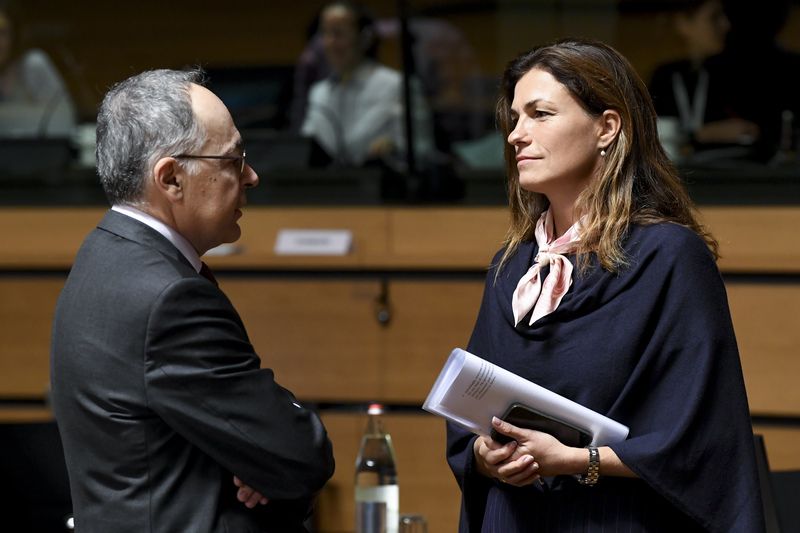
The ministers held policy discussions on the proposal for a regulation of the European Parliament concerning the review of the electoral law, in order to provide political guidelines for further discussions on working level.
Finally, the European Commission shortly presented its communication on enforcing EU law.
After the meeting minister of justice Judit Varga, speaking to journalists, stressed that Hungary will take a strong stance in the two-day EU summit beginning on Thursday concerning energy issues, as for the government, protecting Hungarian people and Hungarian households is the most important.
The Environment Council adopted the council conclusion on COP 27
At the Environment Council on 24 October, 2022 in Luxemburg ministers adopted Council conclusions on the EU mandate for the upcoming meetings of the Conference of the Parties of the UN Framework Convention on Climate Change and on Convention on Biological Diversitiy.
The Hungarian delegation was led by Prof. Dr. László Palkovics Minister for Technology and Industry at the Environment Council. At the meeting the ministers focused on the EU mandate for the upcoming meetings of the decision making bodies of several multilateral environmental agreements, discussed the proposal for industrial emission directive, and the question of setting eco-design requirements for sustainable products.
The Environment Council adopted council conclusion on the 27th session of the Conference of the Parties of the UN Framework Convention on Climate Change which decides on main elements of the EU position to be represented at COP 27. The most contentious element of the mandate was the updated ambition of the nationally determined contributions at EU level were a reasonable compromise was reached at the end.
Under the preparation for the 15th session of the Conference of the Parties of the Convention on Biological Diversity (COP15) ministers agreed that the loss of biological diversity should be handled at the same level as combating climate change and reducing environmental pollutions because these are equally challenging problems with strong interlinkages. Therefore, we need strong but realistic global targets with a robust implementation framework. We need to increase the percentage of protected areas as well as to facilitate sustainable use of biological resources.
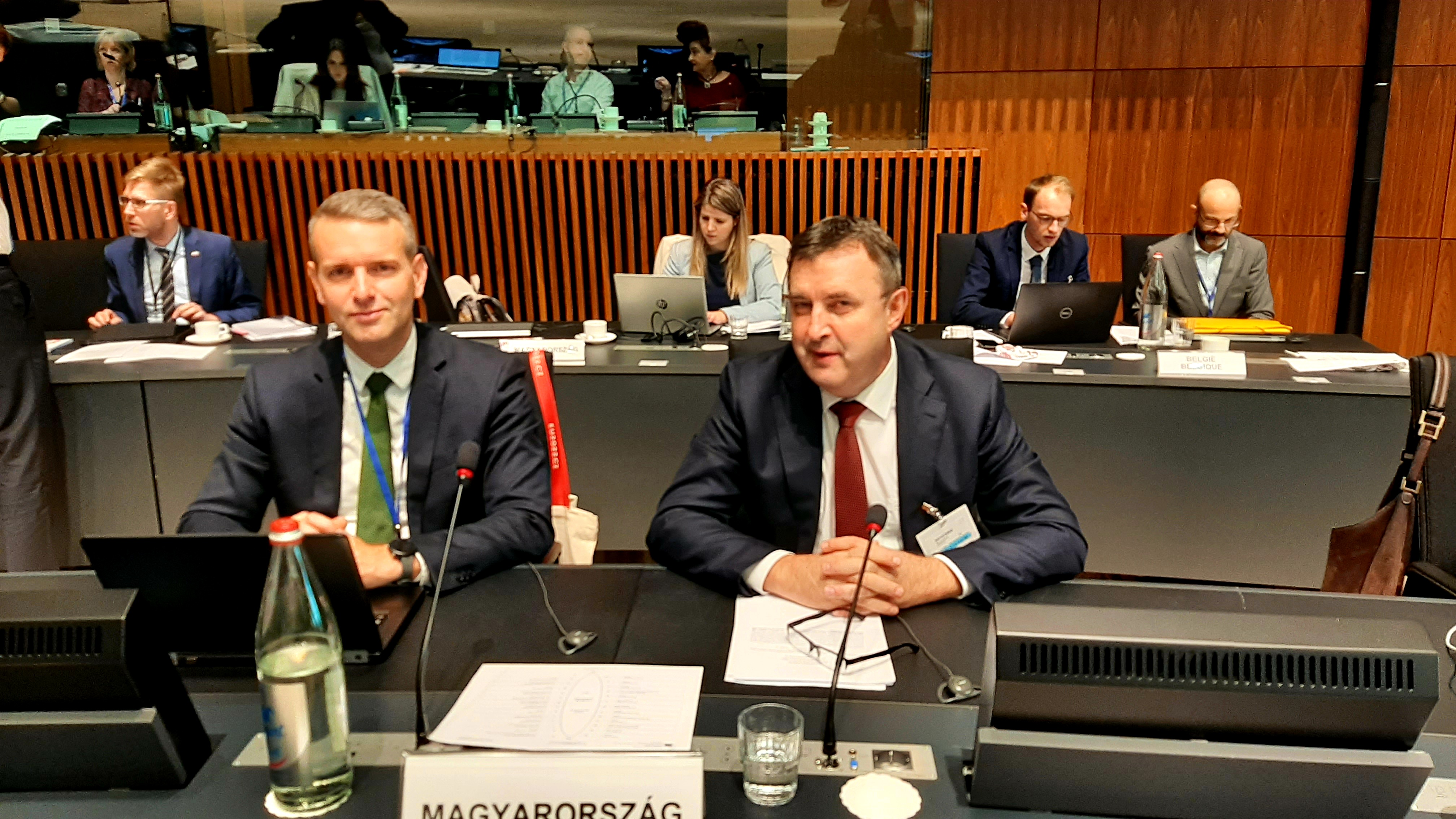
The ministers held a political debate on the directive on industrial emission which was published in May 2022. The ministers were of the view that the extension of the scope would mean unproportionate burden for the livestock sector.
The member states exchanged views about the proposal setting eco-design requirements for sustainable products which aims at facilitating the transition to circular economy. Ministers supported the main elements of the proposal and acknowledged the potential in the Digital Product Passport which helps the consumers to make more sustainable choices.
Hungary is ready to help Ukraine, but does not support new EU borrowing
Hungary is ready to help Ukraine, but will not accept the proposed new EU borrowing to further support the country in war, the Hungarian Finance Minister said in Brussels on Tuesday.
Mihály Varga, speaking to Hungarian journalists after a meeting of the Ecofin Council consisting of EU Member States’ finance ministers, stressed that Hungary does not support this form of assistance because it has bad experiences with EU borrowing. Hungary has not yet received the aid from the EU loan taken out during the coronavirus epidemic, he underlined.
He said the European Commission is proposing a financial assistance package of €1.5 billion per month in 2023, up to €18 billion per year, to cover Ukraine's financing needs. The EU Commission is asking the Member States’ authorisation to borrow the necessary funds. It also wants Member States to take over the interest payments on the loan of around €630 million, said the minister.
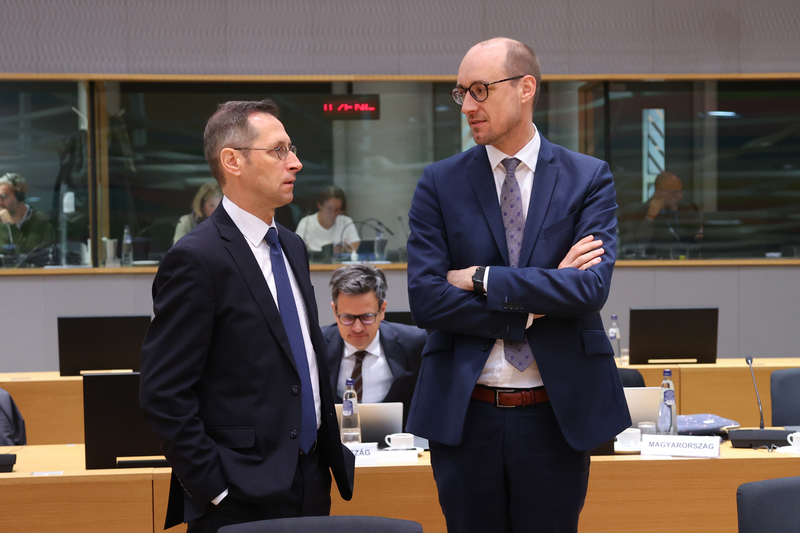
Mihály Varga also pointed out that the International Monetary Fund (IMF) estimates that Ukraine would need €3-4 billion a month (the equivalent of HUF 1200-1600 billion) to keep the state running. Hungary is willing to contribute to this amount, but does not support borrowing, he said.
The finance minister stressed Hungary is ready to help Ukraine further, having received more than a million refugees so far and has already spent more than 31 billion HUF to support the war-torn country since the war began on 24 February. He recalled that Hungary already provided significant amount of aid to Ukraine: before the war, by supporting its macro-financial assistance, and by strengthening the Hungarian minority in Ukraine.
"Hungary is ready to continue supporting Ukraine in financially simpler and more efficient ways, by concluding bilateral agreements, even from its national budget," Mihály Varga said.
He also underlined that the Hungarian government is working to ensure that the country has access to the EU Recovery Fund as soon as possible. To this end, the government is in conduct intensive negotiations with the European Commission, although it is "surprised" that the Brussels body draws up new requests during the talks.
He said that the Commission intends to present its assessment on 22 November on the commitments needed for the adoption of the Hungarian recovery plan. The minister concluded by expressing the hope that the negotiations could be concluded soon, by the end of the year at the latest.
Source: MTI - Hungarian News Agency
The Government rejects the accusations of using the Russian narrative
The Hungarian government considers outrageous and firmly rejects the accusations of using the Russian narrative regarding EU sanctions, Foreign Minister Péter Szijjártó said in Brussels on Monday.
According to the statement by the Ministry of Foreign Affairs and Trade, the minister told during a break in the EU’s Foreign Affairs Council meeting that the events in Ukraine and their implications "were the subject of a highly emotional ideological debate, where there was little room for common sense and rationality".
He called "a pointless and artificially created competition" the comparison of whether the European Union is providing sufficient support to Ukraine compared to the United States.
In this context, he pointed out that no other economy in the world suffers as much due to the sanctions as the EU, where inflation has skyrocketed. "And of course, we know exactly who benefits from this," he said.
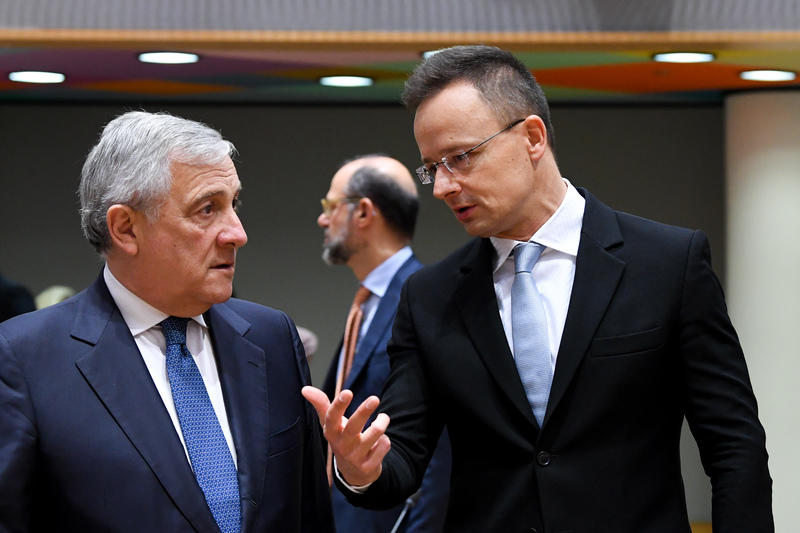
Moreover, he said, the punitive measures imposed have not reached their objectives at all, have not helped to end the war sooner, although on Monday some have already "disputed the very existence of that argument".
In the debate on the possible ninth package of sanctions, Szijjártó said that "some went as far as to say that those who say that sanctions are not working, are using the Russian narrative".
"This is outrageous and must be rejected in the strongest possible terms," he stressed.
"Others may not understand it, but we don't care what the Russians think about what we say. Nor do we care what Brussels thinks about what we say and think. We care about one thing: to look at all existing issues through our own national interests," he underlined.
"Yes, we need to keep our feet on the ground (...) Yes, we have to see that sanctions cause extreme damage to the functioning of the European economy," he said.
The minister said that the arguments about why there should not be direct or indirect talks among warring parties at not legitimate.
"Peace is needed, peace talks are needed, and for that the warring parties must talk to each other, and as soon as possible," he warned.
On the planned financial aid programme for Ukraine, he reiterated that Hungary was ready to continue supporting Kiev, but only on a bilateral basis, and would not contribute to the joint European borrowing.
"The common future is not in the direction of common debt," he said.
"We started supporting Ukraine much earlier than those who now proudly present themselves in Europe as Ukraine's best friends," he added.
Szijjártó also touched on the agenda item on cooperation between the EU and African countries. He stressed that the continent, and Hungary in particular, is under double pressure, with war in the east and illegal migration in the south.
He said that the borders must be protected, tough action must be taken against smuggling networks who violate the sovereignty of European countries, while African states must be supported in tackling the root causes of migration.
On the issue of migrant rescue ships in the Mediterranean Sea, he said that "those who operate these boats on the pretext of human rights are nothing more than human trafficking networks".
In response to a journalist's question, he described last week’s resolution passed by the German parliament to cut €7.5 billion EU funds to Hungary over corruption and rule of law concerns as "political blackmail."
Source: MTI - Hungarian News Agency
Hungarian force development contributes to strengthening European defence capabilities
The large-scale development of Hungarian military forces, ongoing since 2016, is actively contributing to the strengthening of European defence capabilities and the European defence industry, the Defence Minister said in Brussels on Tuesday.
Speaking to Hungarian journalists after a meeting of defence ministers of the Member States, Kristóf Szalay-Bobrovniczky stressed that the war in Ukraine showed that without NATO's security guarantee and under the impact of sanctions against Russia, Europe is vulnerable and exposed in terms of both energy and defence.
In the changed security environment in Europe, the European Union needs to be better prepared, Hungary therefore continues to play an active role in strengthening the EU's ability to act and react. The Hungarian government is relying mainly on European defence companies to procure the necessary defence equipment, he added.
Presenting the details of the ministerial meeting on the war in Ukraine, Kristóf Szalay-Bobrovniczky said it was regrettable that there was no prospect of the start of negotiations aimed at a ceasefire and ending the conflict, which Hungary had long been calling for.
"These are turbulent times ahead. The end of the conflict is not imminent", the minister said, adding that the situation is not conducive either militarily or politically for the opposing sides to sit down at the negotiating table, although this would be in the interest of Europeans, including the Hungarian people.
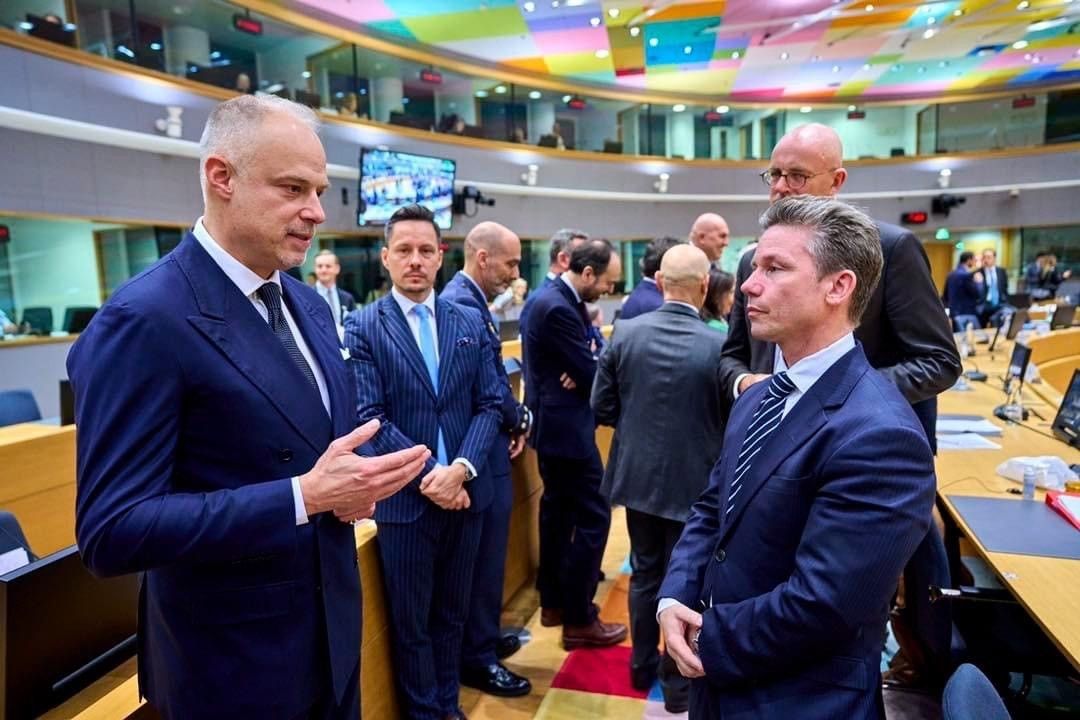
The Minister also said that the EU's assistance missions were also discussed at the meeting. Regarding the EU's role in Africa, Mr Szalay-Bobrovniczky said that the emergence of hotspots threatening Africa's security highlighted the timeliness of Hungary's long-held position that "problems should not be brought to Europe, but dealt with locally".
On the mission to strengthen the capabilities of the Ukrainian armed forces (EUMAM Ukraine), announced on Tuesday, the minister said Hungary's position on the issue was reserved. Any step that would lead to the involvement of international actors in the conflict would risk escalation and harm the security of the Hungarian people. It is necessary to provide assistance on a bilateral basis, as Hungary has done since the beginning of the Russian-Ukrainian war in February through the largest humanitarian action in its history, he added.
Source: MTI - Hungarian News Agency
Hungary has done everything to reach an agreement with the European Commission
Hungary has done its utmost to meet the seventeen commitments it had previously negotiated, to meet the deadline in order to reach an agreement with the European Commission, Minister of Justice Judit Varga said in Brussels on Friday.
Speaking to Hungarian journalists ahead of the General Affairs Council meeting of EU-affairs ministers in Brussels, Judit Varga stressed that Hungary is engaged in intensive negotiations and in-depth work with the European Commission, and that a constructive and professional dialogue is taking place between Brussels and Budapest. She stressed that the Hungarian Parliament has been working on reaching an agreement since September and that further plans are on the table.
On Saturday, Hungary sends an official letter to the Brussels body informing it of the work undertaken, she said.
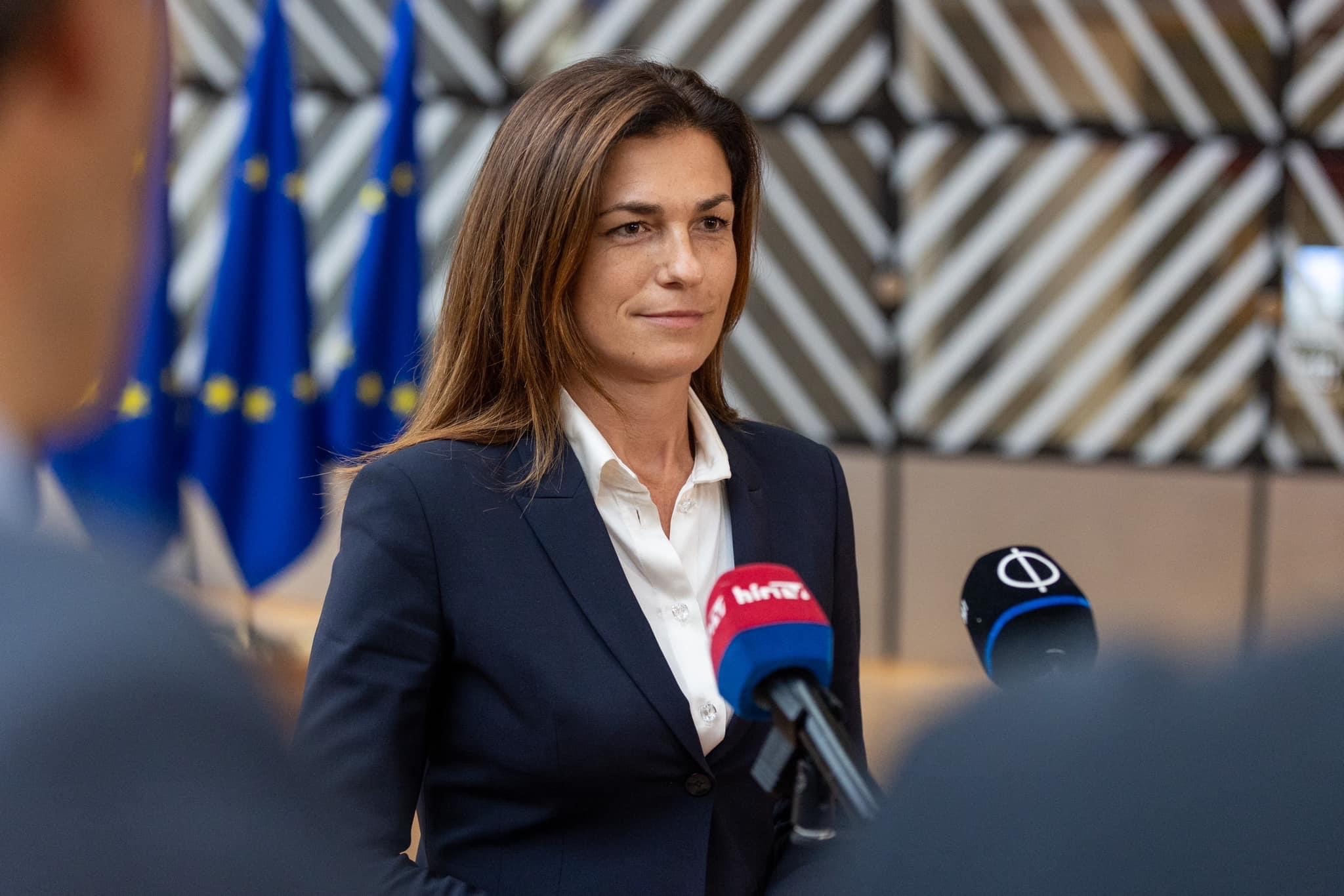
On the rule of law conditionality procedure launched against Hungary, she said the process could be a "test case", as it could become an example of forward-looking dialogue, a symbol of unity and a confirmation of solidarity. She warned, however, that the process may well become hostage of different political agendas. This, she said, must be prevented as it could undermine the unity of the European Union at a time when Europe is facing unprecedented challenges.
She said that Hungary sees the negotiation process as a "test case for confidence building", because it is acting responsibly and sparing no human and financial resources. Hungary expects its partners to show a responsible European attitude, so that it can finally tackle the tasks that are really important.
She stressed that Hungary will consider all commitments and proposals that can contribute to the efficient use of EU funds. Hungarian measures are a model for Europe and could serve as an example for other member states, she noted.
Source: MTI - Hungarian News Agency
Environmental and economic aspects were in the focus at the Agriculture and Fisheries Council in November
Agriculture ministers exchanged views on the new EU forest strategy, the nature restoration law and the fertilizer communication at the Council meeting, held on 21th of November in Brussels.
The ministers complained that the member states were not involved in the preparation of the EU Forestry Strategy and drew attention to the role of the Standing Forestry Committee. István Nagy emphasized that the implementation of the Strategy is a joint task of the Commission and the member states, and Hungary is still ready to take on a greater role in its successful implementation. He called it important to highlight the professional opinion of the forestry sector, the effective utilization of national experiences and the consideration of national characteristics.
Ministers discussed the agricultural aspects of the nature restoration law. Minister István Nagy stressed that we simply do not have enough land to reach the restoration targets set by the Commission. There are different sectors competing for the same given area, because more food and more renewable energy need to be produced in such a way, which also takes into account the interests of the environment and biodiversity. This can only be achieved by finding the right and reasonable balance between agricultural aspects and environmental considerations.
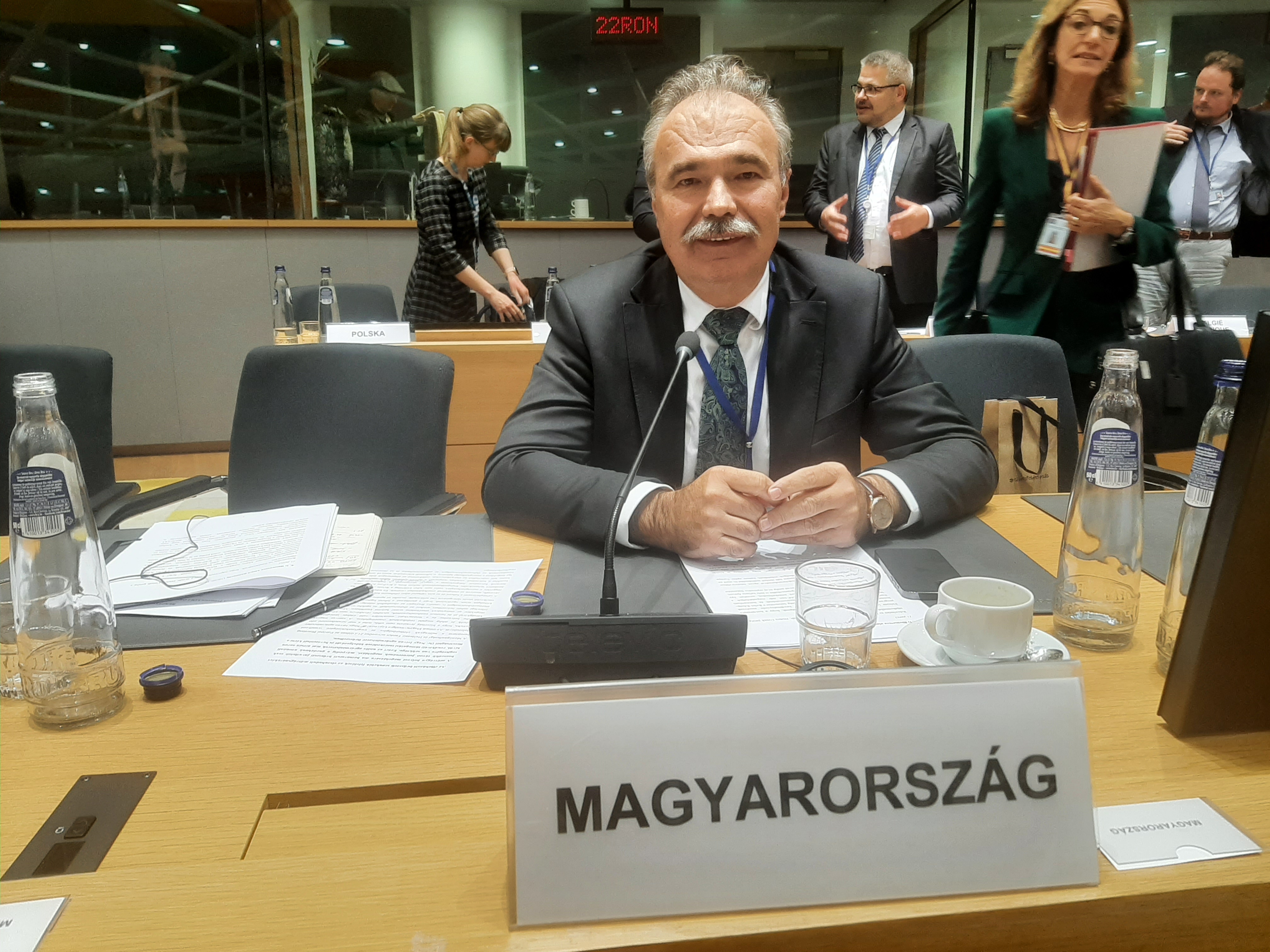
Referring the dramatic incensement of energy and fertilizer prices, the Commission presented its Communication, which was published on 9th of November. Minister István Nagy welcomed the Fertilisers Communication, but also asked for short term, exceptional market measures to ease the pressure on farmers caused by high fertiliser, energy and other inputs prices.
In addition, the conclusions of the EU bioeconomy conference were discussed. In June, the Commission issued a positive report on the progress of the European bioeconomy. The conference conclusions pointed out that the bioeconomy policy should be better integrated into other EU policies, especially with regard to the bioenergy sector. Minister István Nagy particularly welcomed the fact that the Commission involved the BIOEAST initiative into the conference programme development, and asked for its further support.
Hungary may get an exemption from the oil price cap
Hungary is to be exempted from the planned EU oil price cap, which is essential for guaranteeing security of supply, but several dangerous proposals remain on the table, Minister of Foreign Affairs and Trade Péter Szijjártó announced in Brussels on Thursday.
According to the statement of the Ministry of Foreign Affairs and Trade, the minister said at a press conference following an extraordinary meeting of EU energy ministers that the proposal in its current form would not apply to pipeline transport or, if it becomes necessary due to the impossibility of pipeline transport, maritime transport, which is important because of the disruptions of the transit in Ukraine.
He stressed that if this were not the case, it would lead to a reduction in Russian deliveries and thus to an increase in prices.
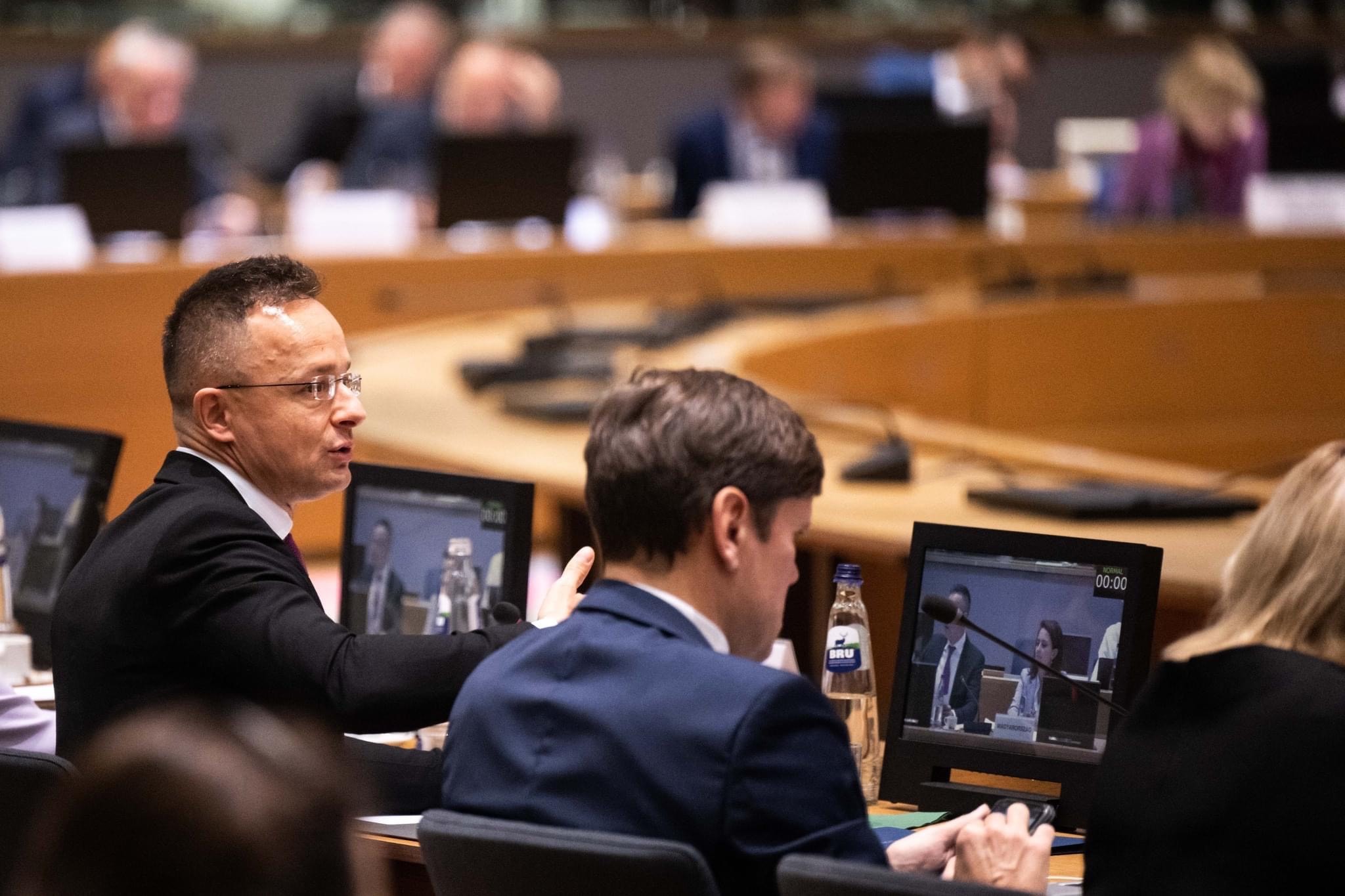
Szijjártó then referred to other proposals from the European Commission, which in his opinion would also jeopardise the continent's energy security.
On the pending gas solidarity measures, he said that they were just another "power claim" by Brussels to erode member states' energy sovereignty. He added that agreement on the issue had been blocked due to opposition from a significant number of participants.
The minister welcomed the fact that, thanks to the work of Hungary among others, voluntary agreement had been reached on the common gas procurement mechanism, so that we do not have to get trapped in platforms that are "not to our advantage".
However, he highlighted two elements of the proposal. Firstly, that it would require member states to inform the European Commission six weeks in advance if they wish to negotiate gas supplies, while in the current crisis situation, decisions need to be taken quickly. In addition, the transmission of sensitive information, as he pointed out, would seriously harm interests.
"This is obviously nonsense, madness, we don't even understand how it could have been included in the proposal," he said.
According to the other objectionable element, in an emergency, member states would have to hand over part of their gas stocks to certain countries facing difficulties, if they have enough gas in storage.
"Imagine a situation in which the natural gas that we purchased and put into storage for the use of the Hungarian people and the Hungarian economy, bought with the Hungarian people's money, is not used by the Hungarian people and companies (...) but has to be given to another country," he said.
He underlined that since the price is higher when filling storage than when withdrawing it, the proposal would open the way for speculation, as no one would be interested in buying when it comes to storage, which would pose a huge security of supply risk.
Szijjártó said that negotiations had also started on the gas price cap, but no decision had been taken thus another extraordinary Council meeting had been called for 13 December.
He described the proposal as dangerous, unnecessary and inappropriate, saying that "in certain price environments it could lead to the withholding or diversion of supplies to Europe to other areas" and that it was not in line with the decision taken at the last European Council.
As an example of the latter, he said that the then adopted final declaration stated that the price cap should not affect long-term contracts in any way, which would not be the case in this situation, and this is unacceptable to the Hungarian government.
"Long-term agreements should not be affected by the gas price cap, we want to secure an exemption for Hungary in this respect, and we do not support the solidarity mechanism if it contains such unreasonable, irrational, crazy proposals", he said.
Finally, he said that the solution to the energy crisis would be to increase the amount of gas on the market, without excluding any supplier, but by involving new sources and transit routes.
Source: MTI - Hungarian News Agency
It is deplorable that Brussels is blocking investments in EU member states
It is deplorable that Brussels is blocking investment in EU member states, when the war in Ukraine and the recession caused by sanctions could only be avoided by investments in EU member states, Minister of Foreign Affairs and Trade Péter Szijjártó said in Brussels on Friday.
At a press conference following a meeting of EU trade ministers, the minister said that investment promotion was the way out of the crisis caused by the coronavirus epidemic in Hungary, and that it is necessary now to maintain economic growth. "Investment will create jobs, jobs will create production, production will create economic growth," he said.
"By contrast, what the European Commission is doing is rather deplorable (...) We have broken records in recent years in vain, and we could have more investments if the European Commission did not hinder it," he added.
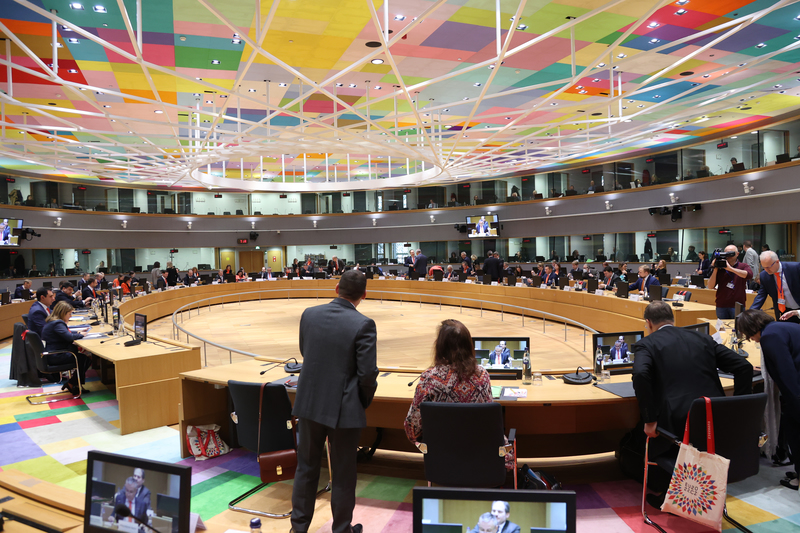
Mr Szijjártó reminded that under the current rules, EU member states can grant up to €37.5 million in aid from their own resources without Brussels' approval; above that approval is required.
He said that in the current situation, this requirement should be suspended, especially as approval procedures take an unacceptably long time, often more than a year.
"We Hungarians have an approval procedure to give our own money for job creation in Hungary, which has been before the European Commission for four years," he stressed. "This is unacceptable in peacetime, even under normal circumstances, and it is extremely damaging to European competitiveness," he underlined.
He added: "This rule is delaying hundreds of millions of euros of investments in Europe, putting hundreds or thousands of jobs at risk.
"While the European Commission is not giving Hungary the money it is entitled to, they are preventing us from using our own money to finance job creation," he said.
The minister also referred to the trade conflicts between the European Union and the United States, saying that the war in Ukraine and the sanctions were pushing the European economy into recession.
"In the world economy, the European Union is currently on the losing side (...) And it is very clear who is profiting from the suffering of the European economy," he said.
"The position and competitiveness of the US economy has certainly improved in the last period, the European economy's move into recession is good news for the US economy and it seems that the Americans have been able to benefit from it," he said.
He said that the US Inflation Reduction Act, the discrimination against European electric cars and the tariffs on aluminium were all measures that "raise quite strong suspicions of a breach of the rules that govern the global economy".
He said that while the European Commission is in constant consultation on the matter, and does rightly so, there is no realistic chance of the legislation being repealed or amended, and the EU should do likewise, supporting its own economy and companies.
Source: MTI - Hungarian News Agency
Impacts of the crises were at the centre of discussion in the Education, Culture, Youth Sport Council meeting, 28-29. November 2022
János Csák, Minister of Culture and Innovation and Zoltán Maruzsa, Minister of State for Public Education represented Hungary in the meeting.
Ministers discussed about impacts of the crises caused by the pandemic and the war in Ukraine in the field of education, culture and sport. They discussed how the European Education Area can react more quickly and efficiently to crises such as Russia’s aggression against Ukraine or the COVID-19 pandemic. Many ministers highlighted ongoing efforts related to the integration of Ukrainian children in their education systems and to the support of the Ukrainian cultural sector.
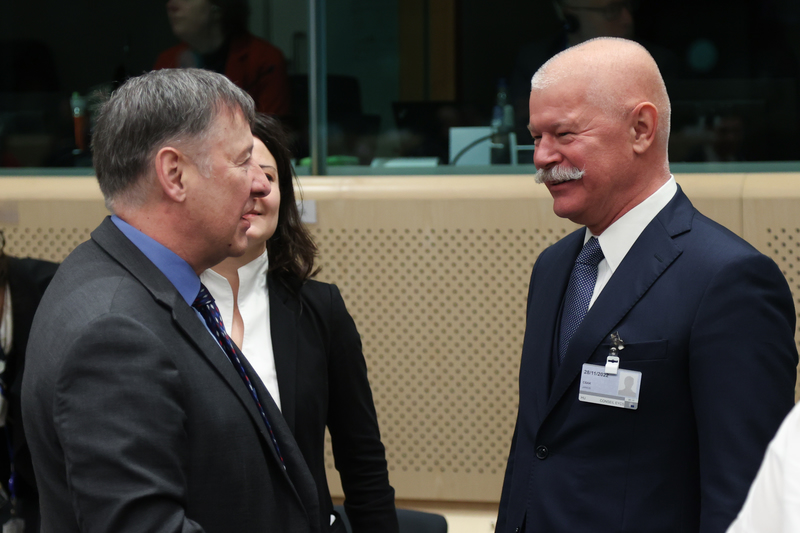
The Council assessed the implementation of the 2022 European Year of Youth and adopted conclusions on the well-being in digital education, on fostering intergenerational dialogue, and on sustainable and accessible sport infrastructure. Furthermore, the Council adpoted a recommendation on pathways to school success.
The newly adopted EU Work Plan for Culture lays down the thematic framework of European cooperation in the field of culture for 2023-2026.
The payment of EU funds due to Hungary cannot be linked to other issues
Hungary considers it a dangerous precedent to link the disbursement of EU funds to completely unrelated issues, but several EU member states would link the approval of the Hungarian recovery plan to the Hungarian government changing its position on various other issues, Finance Minister Mihály Varga told MTI on Tuesday in Brussels.
Speaking at a press conference following the meeting of EU finance and economic affairs ministers (Ecofin), the minister stressed: this is not a fair attitude since the global minimum tax and the €18 billion EU loan to support Ukraine are not linked to the disbursement of EU funds.
Regarding the Hungarian recovery plan, Mihály Varga said that it was a significant step forward that the European Commission not only gave it a positive assessment after a year and a half, but also gave it in fact an excellent grade. Furthermore, there are categories in which Hungarian programs are among the top five. He said that the content of the plan was supported by all member states, so that it could be officially approved by the end of the year.
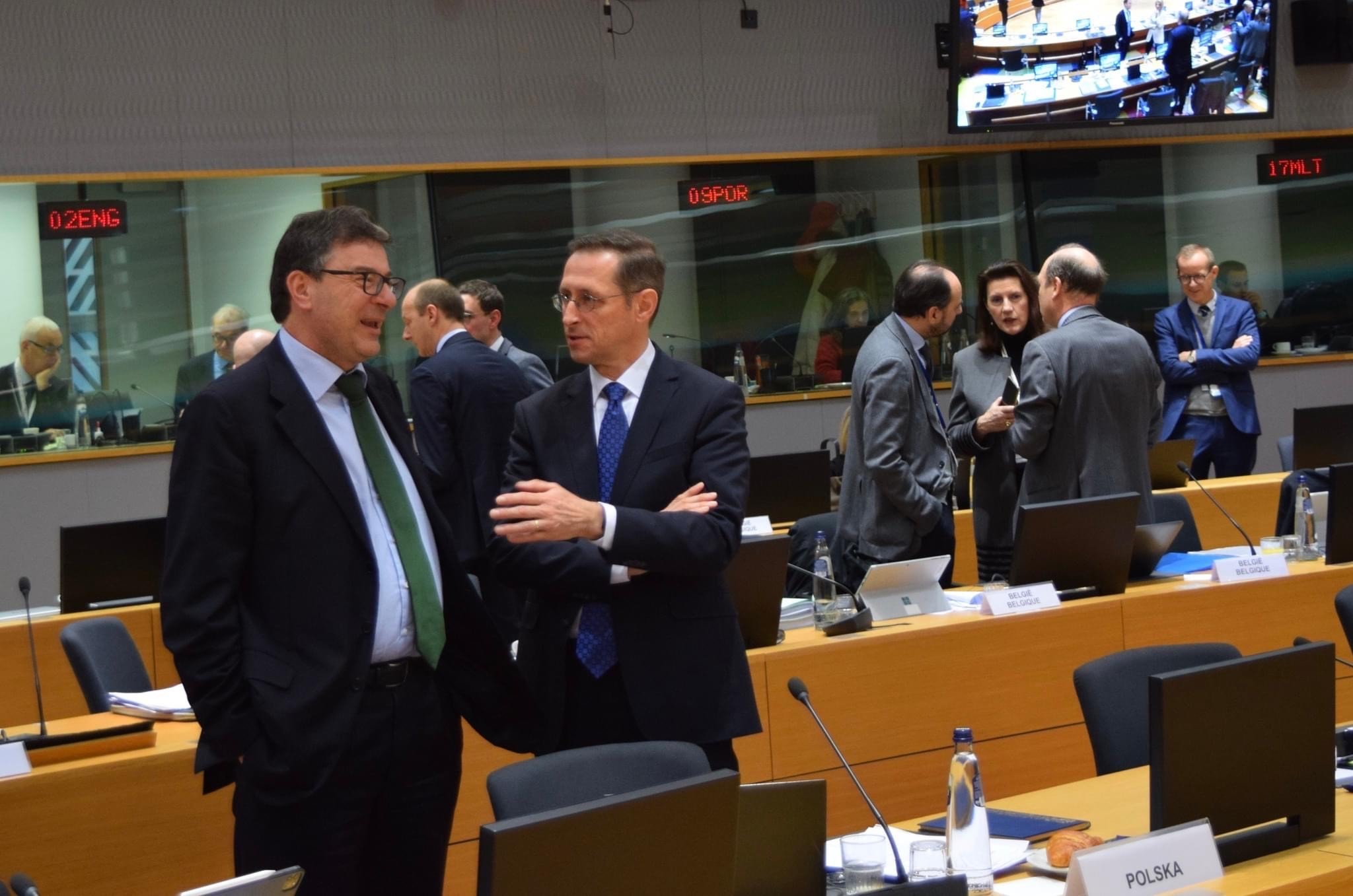
However, he said, it was regrettable that the commission maintained its September recommendation to suspend payments for three operational programs, despite the fact that the government had fully met its commitments until November on the 17 issues requested by the EC. He added that several EU member states are of the opinion that this is the first time that a procedure is being carried out under the rule of law mechanism and that the commission must therefore "remain fair, proportionate and objective, and base its position on facts".
"Several member states have indicated the need for an objective assessment, taking into account the steps taken by the Hungarian government after 19 November. France and Germany, for instance, believe that there is a certain disproportionality in the commission’s assessment," Mihály Varga said, expressing hope that the EU executive body will conclude the process with a more objective rating.
On the joint €18 billion EU loan to support Ukraine, the minister said that Hungary was not willing to contribute to it. "We have had bad experiences with joint borrowing, for example, this type of EU decision during the coronavirus pandemic did not help Hungary to access the funds," he added.
He stressed that Hungary is ready to further help Ukraine, but it will only provide loans within the framework of a bilateral agreement, from its own resources, for specific purposes to be defined together with Ukraine. The necessary funds are available in the Hungarian budget, the Finance Minister said.
Mihály Varga recalled that Hungary has already taken in more than one million refugees from Ukraine and has spent HUF 31 billion to support the war-torn country.
Speaking about the global minimum tax, the Finance Minister stressed that Hungary has one of the lowest corporate tax rates, at 9 percent, which would have to be raised to 15 percent in line with international efforts to introduce a global minimum tax. The tax increase would also lead to job losses in Hungary and a deterioration of competitiveness, which is why Hungary does not support the increase of the global minimum tax, he said.
Hungary rejects the idea of linking these two issues to the EU funds we are entitled to, Mihály Varga said.
Source: MTI - Hungarian News Agency
An agreement to strengthen the European semiconductor industry was reached at the Competitiveness Council on 1-2 December 2022.
At the Competitiveness Council on 1 December, ministers agreed on a framework of measures to strengthen the European semiconductor ecosystem. The main objective of the proposal is to increase Europe's chipmaking capacity. The Council also reached a general approach on two other dossiers, a proposal for a directive on corporate sustainability due diligence and a proposal for a regulation on geographical indications protection for craft and industrial products. On the latter, Hungary appreciated the fact that the new protection system will enhance the reputation and value of our local producers' products, not only in the EU but also beyond.
The Council also adopted conclusions on the European Agenda for Tourism 2030, which includes various measures to promote the sustainability and the digitalisation of the sector.
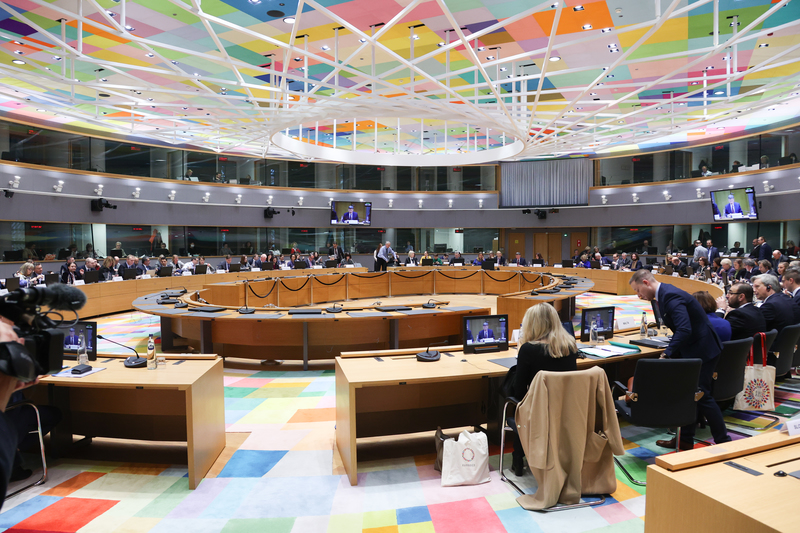
On the second day of the Council, Hungary was represented by Minister János Csák in the research format. During the meeting, ministers endorsed Council conclusions on research infrastructures and the New European Innovation Agenda and adopted a Council recommendation on guiding principles for knowledge valorisation. In addition, a policy debate was held on "Science as an instrument to facilitate policy making in the Member States". In this context, minister Csák indicated that a new intergovernmental body would be set up in Hungary to ensure the practical use of research results in specific priority areas and their integration into policy-making.
In the space policy format, ministers discussed how to make better use of the satellite data produced by the European flagship programmes Copernicus and Galileo and looked forward to the Commission's strategy on this subject, which will be developed next year.
Border controls between Hungary and Croatia will be abolished from January
Border controls will be abolished on the 344-kilometre-long border between Hungary and Croatia from 1 January, following the approval of Croatia's accession to the Schengen area by the Council of Interior Ministers of the EU Member States, the Parliamentary State Secretary of the Ministry of the Interior said in Brussels on Thursday.
Speaking to Hungarian journalists after the ministerial meeting, Bence Rétvári stressed that Croatia's accession to Schengen would boost transport between the two countries and facilitate tourism. The fact that the Hungarian-Croatian border will become interoperable also means that the work of the police officers who have been on duty there so far - involved in border surveillance - can be used to protect other border sections or to safeguard the country's security, he said.
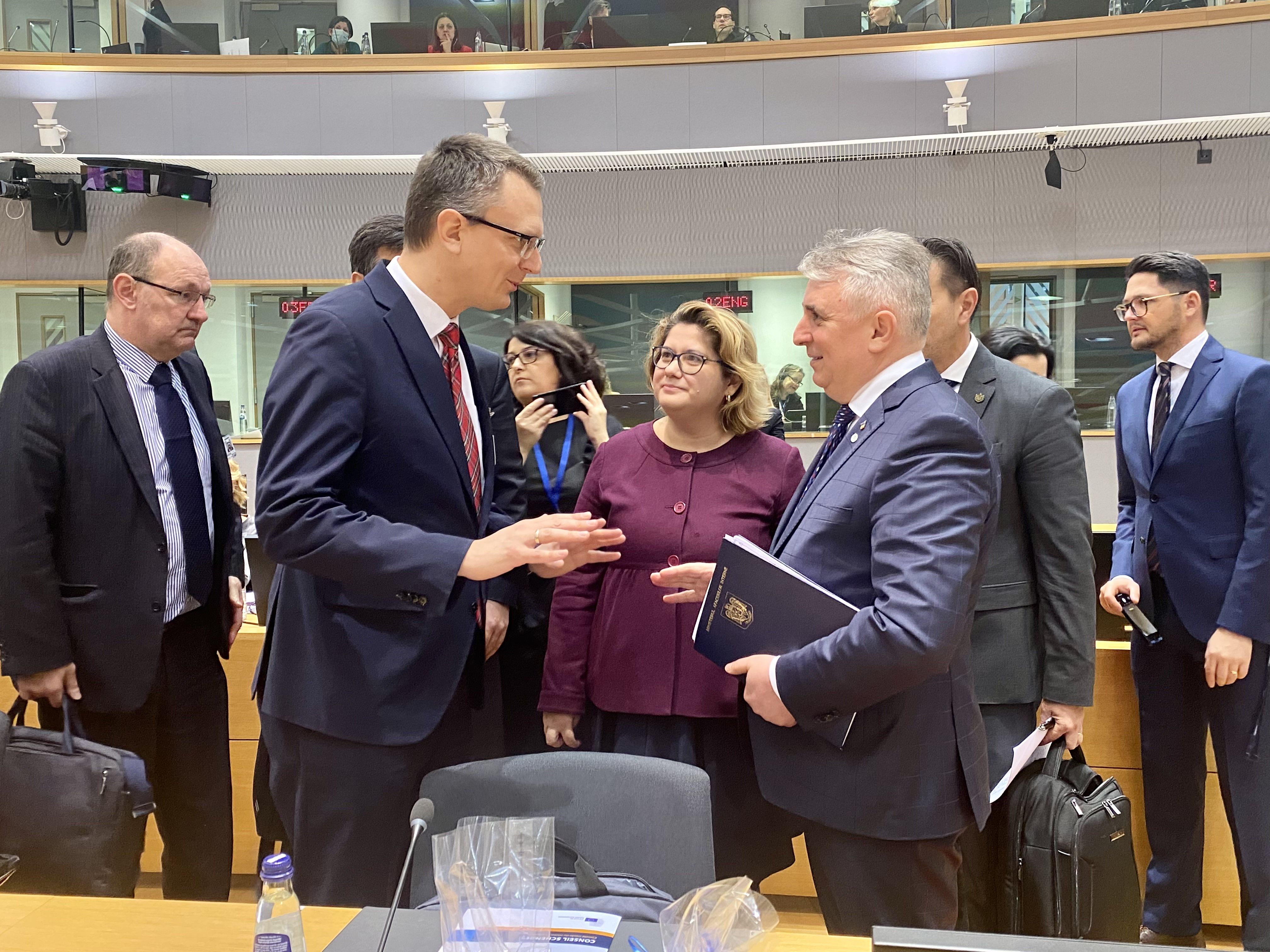
Concerning the details of the Council meeting, he said that Romania and Bulgaria were very close to becoming part of the Schengen area, with only two votes missing for the two countries.
It must be acknowledged that the two countries have been waiting on the doorstep of the Schengen area for eleven years. Bence Rétvári said that after eleven years, it is not possible to impose new conditions or to take into account political criteria unrelated to accession in order to accept Schengen membership.
He stated that Hungary has always actively supported the Schengen accession of Romania and Bulgaria, as well as Croatia. Hungary wants these two countries to be part of the free movement area within the EU as soon as possible. In addition to strengthening economic relations, their accession would help to reinforce the protection of the EU's external borders, which would play a significant role in deterring illegal migration. It would also be important for Hungary in terms of national policy, as it would make it easier for Hungarians living on both sides of the Hungarian-Romanian border to cross the border, he stressed.
In the context of the debate on migration, Bence Rétvári said: Hungary continues to reject - and will not support in the future - any proposal that would distribute migrants among member states on the basis of quotas. He said that when the capacities of other Member States are also being exhausted in terms of migration, then we should not work on stimulating migration, not on opening borders, not on distributing migrants according to quotas, but on stopping migration. In this respect, Italy has become an ally of the Visegrad countries, as Rome has made it clear that illegal migration can be stopped not only on land but also at sea, the Parliamentary State Secretary of the Interior Ministry added.
(Source: MTI)
Challenging agenda on the EPSCO Council meeting
The EPSCO Council took place on 08 December 2022. Ministers faced a particularly challenging agenda which allowed them to discuss a large range of issues concerning employment and social policy. Policy debates included family policies, the European Semester and the European Care strategy.
The proposal for a directive on improving working conditions in platform work was almost univocally welcomed by the Ministers. However, certain Member States felt that further negotiations were needed therefore either abstained or refused to support the majority of the Council.
The ministers unanimously voted for a general approachabout the directive on the protection of workers from the risks related to exposure to asbestos at work. Ministers took note of the progress reached regarding the directive on equal treatment and despite the majority, including Hungary, supported the proposal, failed to reach a general approach about the directive on improving working conditions in platform work.
The Council reached a political agreement on the Council recommendation on adequate minimum income ensuring active inclusion. Ministers adopted two Council recommendations (on early childhood and education, also on access to affordable high-quality long-term care) and approved two Council conclusions (on the inclusion of persons with disabilities in the labour market and on gender equality in disrupted economies); furthermore, the ministers were informed about the progress towards the adoption of the European Year of Skills 2023 resolution.
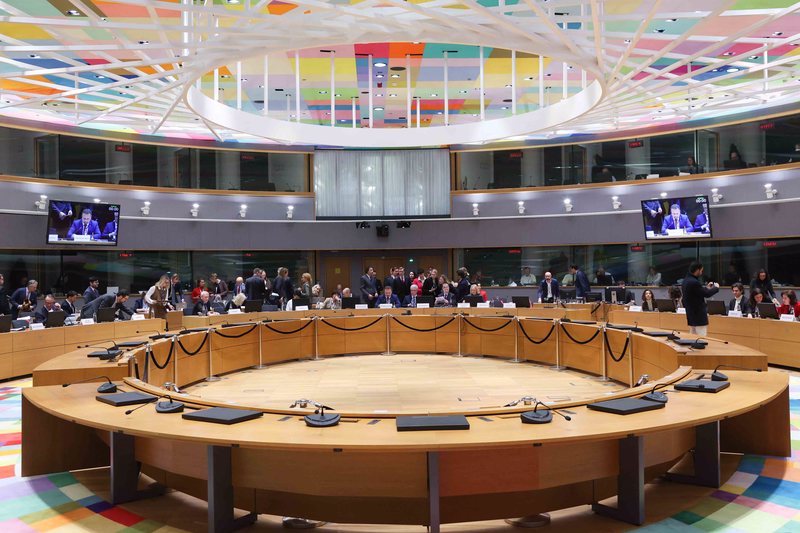
The debate related to family policies highlighted the need for additional efforts and mutual learning in order to respond to the demographic challenges and strengthen families as the precious nucleus of our European society. Hungary gave a comprehensive overview of its complex and multi-layered set of governmental initiatives and measures aiming to support families, especially those, taking care of several children.
Demographic trends, yet again: these changes, very likely to shape our future, invited ministers to analyse the benefits that the Communication on the European Care Strategy can bring so as to adequately tackle the effects of an ageing European society. Ministers also had the occasion to address the interests of people with care needs and carers, both – always with an eye on gender aspects of care. As future building blocks for the Strategy, ministers adopted two Council recommendations (on early childhood and education, also on access to affordable high-quality long-term care).
The autumn package is a solid compass for the annual evolution of the European Semester. In light of the future reforms touching to the economic governance framework, expected to affect the Semester, ministers could deliver their respective views on those implications. In connection to the package, the 2023 Annual Sustainable Growth Survey, Alert Mechanism Report, and the draft Joint Employment Report were all presented to EPSCO, and the EMCO Key Messages on the Implementation of the Recommendation on the integration of the long-term unemployed into the labour market.
The proposal for a directive on improving working conditions in platform work was almost univocally welcomed by the Ministers. However, certain Member States felt that further negotiations were needed therefore either abstained or refused to support the majority of the Council.
The Council took note of the progress report on the work, focusing mainly on the compliance with UN CRPD and temporary exemption regarding the draft directive of equal treatment between persons, irrespective of religion or belief, disability, age or sexual orientation (Article 19).
The current situation, hugely aggravated by several forms of crises, calls for further measures. The Council recommendation on adequate minimum income ensuring active inclusion – agreed by the ministers – shall offer considerations and guidance to Member States on how to strengthen their respective income support schemes to remain adequate, responsive to crises and, yet, able to ensure labour market participation. Hungary, being concerned that the draft did not find an appropriate balance between the relevant objectives, was not in the position to give its consent to the draft.
Once talking about inclusive labour markets, ministers approved Council conclusions on the inclusion of persons with disabilities in the labour market. A heterogenous, but, in overall, very vulnerable group, persons with disabilities still face a considerable employment gap compared to those without disabilities. Their specific interests will be taken up by the new tool. The Council also adopted conclusions on gender equality in disrupted economies with a special focus on young people. The document highlights the effects of the pandemic and the current situation in Ukraine which affecting women disproportionally. Hungary supported the adoption of both documents.
As any other business points, ministers were informed about the ongoing and newly proposed legislative proposals, the state of play for the European Platform on Combatting Homelessness. The Czech Presidency gave an overview of the conferences held in the second half of 2022 and the upcoming Swedish Presidency presented its program.
EU health ministers have met again
The EPSCO Council of health ministers took place on 9 December 2022 in Brussels. On behalf of Hungary, Péter Takács secretary of state of health attended the meeting.
The main exchange of views touched upon the joint procurement of vaccines, whereby ministers shared their expectations on the adjustment of currently running contracts. Péter Takács emphasised that in the light of the favourable pandemic situation and the extremely difficult global political and economic situation, it is essential that Member States are only obliged to purchase vaccines in the quantities that correspond their real needs.
The Council adopted its recommendation on cancer screening and council conclusion on promoting vaccination. As regards draft regulations on European Health Data Space and substances of human origin, the ministers took note of progress report presented by the Presidency.
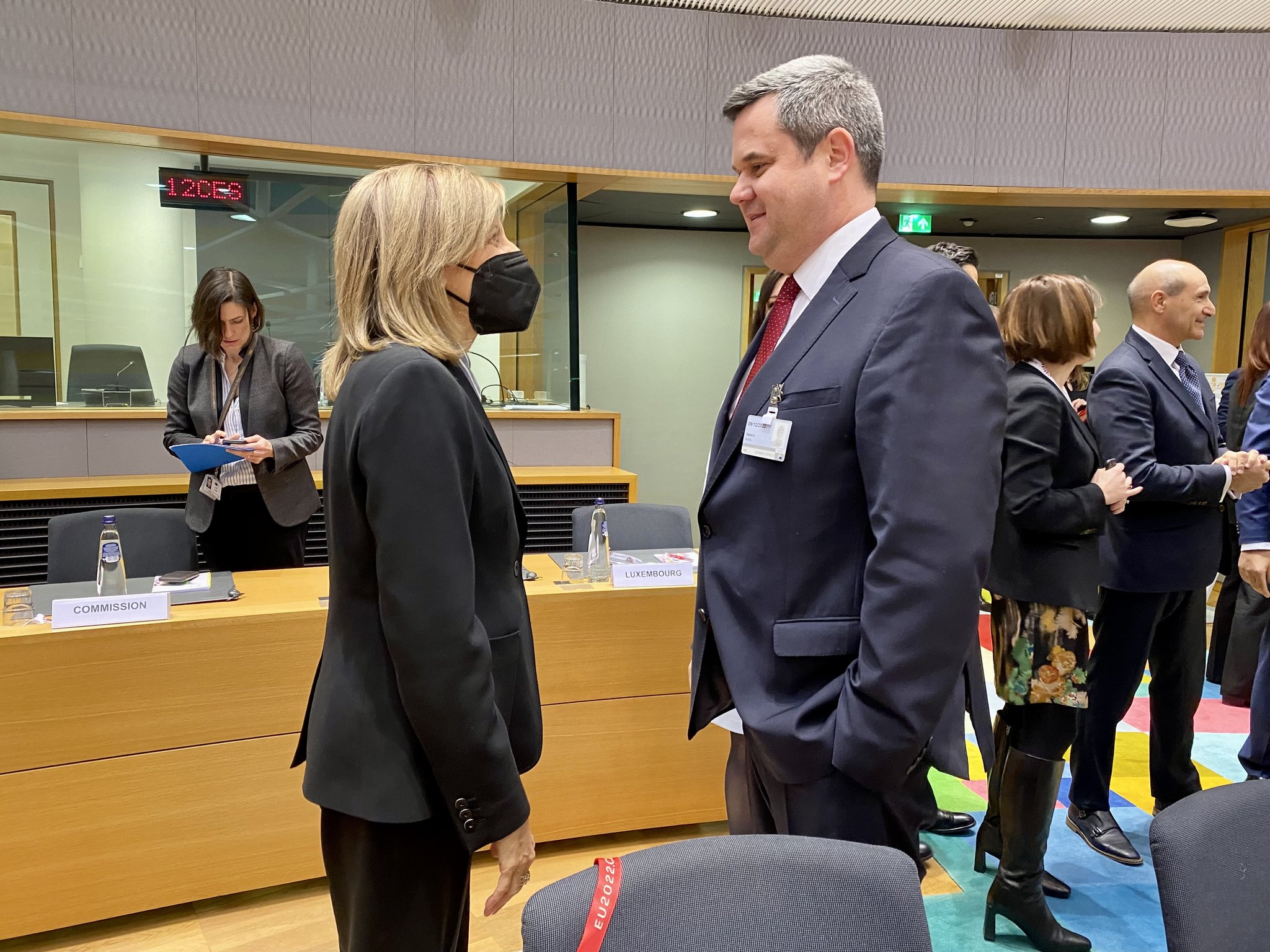
Under AOB items, Péter Takács underlined that the future pharmaceutical package should create a balance between supporting innovation and affordable prices. Concerning the medical devices regulation, we need to ensure smooth implementation and we equally need to meet all the preconditions of the applicability of clinical trials regulation.
Market situation and the new CAP were in the focus at the Agriculture and Fisheries Council in December
Ministers of agriculture exchanged views among others on the market situation and the state of play and the new challenges of the CAP Strategic Plans in their meeting held on 11-12th of December in Brussels.
Regarding the market situation, Ministers still highlighted the challenges of the instable situation, the increased energy and input costs. Minister István Nagy together with other ministers called for the mobilization of the new agriculture reserve. Therefore, agricultural businesses could reduce the impact of the unprecedented increase in energy costs.
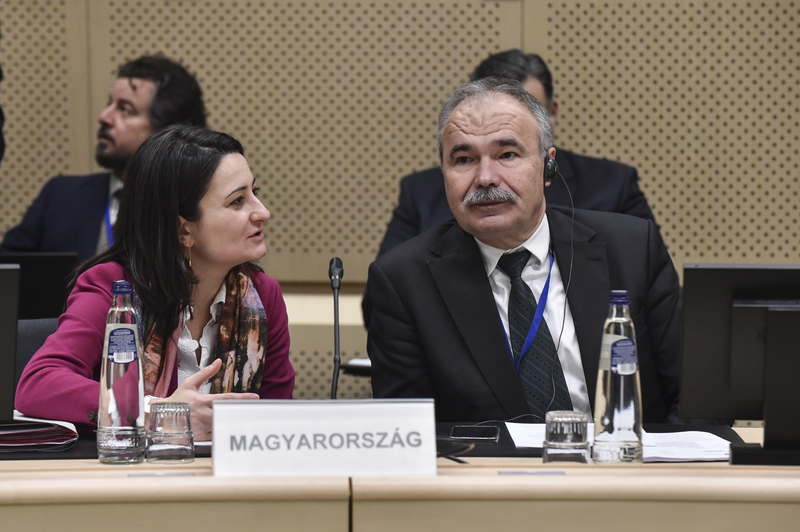
The Commission informed that all CAP Strategic Plans have been adopted with the exception of one Member State. As regards the content targeted and fairer distribution of direct payments, support for young farmers and thus for generational renewal and the ambitious environmental contribution were mentioned. Minister István Nagy welcomed the one month ago approved Hungarian CAP Strategic Plan, on the other hand highlighted the need for flexibility in future modifications.
All Member States took the floor regarding the valuation of the EU animal welfare legislation, stating their principles and perceptions on the Commission’s upcoming package of legislations. The Hungarian delegation emphasized the importance of maintaining the competitiveness of EU-producers and stressed that the new requirements shall be based on scientific evidence. Further, the implementation should take into account socio-economic effects and apply a gradual, harmonized approach.
Further topics were also discussed such as the sustainable use of plant protection products Regulation, the geographical indications Regulation and the outcome of the high-level conference “Harmonized front of pack labelling and its impact on sustainable food labelling”.
Member States have approved the Hungarian recovery plan
Member states have listened to Hungary's arguments and on Tuesday morning adopted the Hungarian recovery plan, which will allow the country to draw on EU funds to help its economic recovery from the coronavirus pandemic, Justice Minister Judit Varga said in Brussels on Tuesday.
"We woke up to good news," she said.
Speaking ahead of a meeting of EU ministers responsible for general affairs in Brussels, Judit Varga stressed that the adoption of the recovery plan was an accurate reflection of the situation, as the European Commission itself had described the Hungarian recovery package as one of the best.
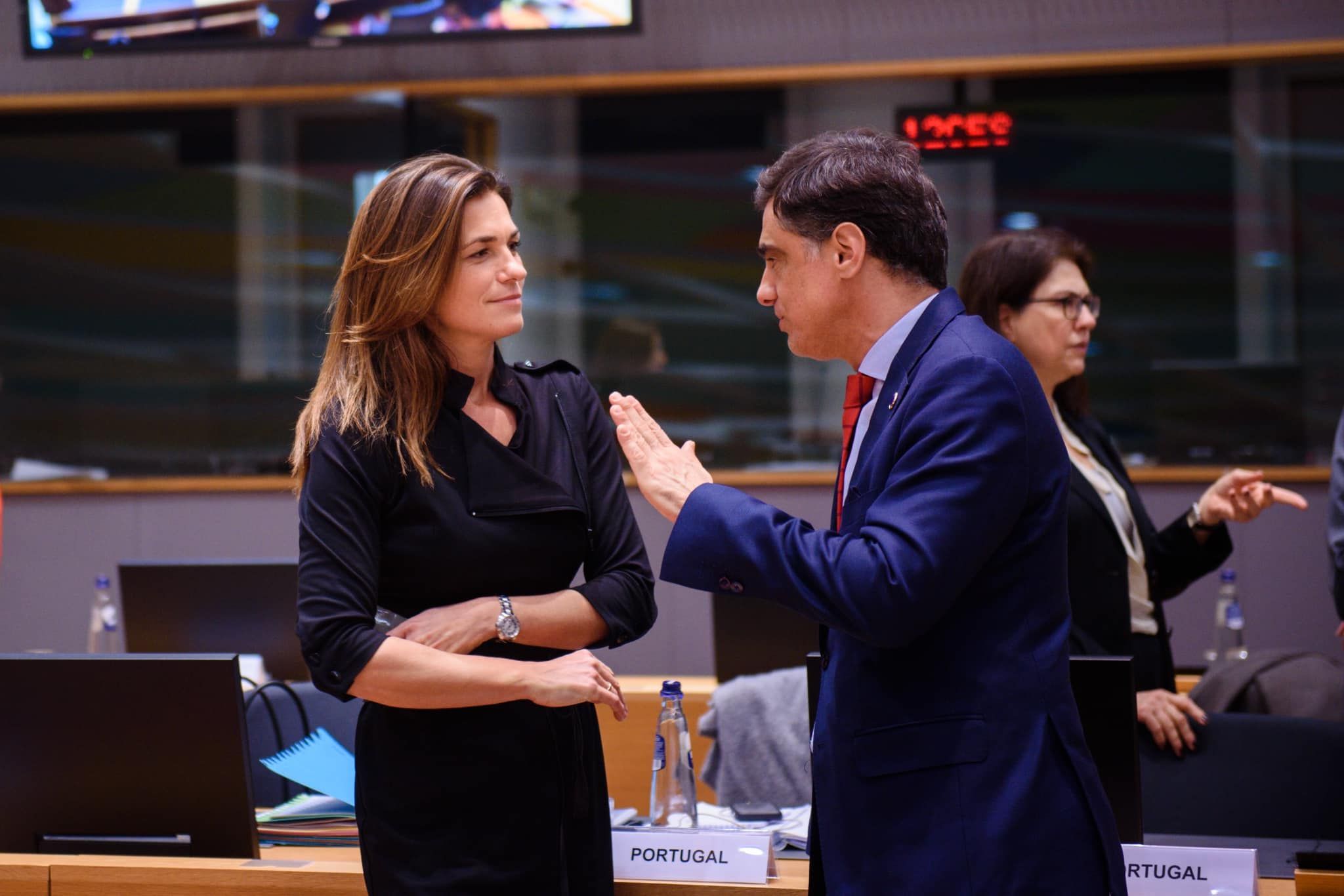
She said that during the adoption process Hungary had considered all reasonable professional proposals that did not conflict with the democratic mandates given to the government by the voters. Hungary has worked in this spirit, and as a result, it has been able to accept corrective and constructive compromises.
She also said that Hungary had fulfilled all its commitments regarding the conditionality procedure and would continue to work with the same efficiency and in a spirit of forward-looking, constructive cooperation to unblock the temporarily suspended cohesion funds as soon as possible.
The Justice Minister said that it was important that Member States had understood Hungary and, in a truly responsible and constructive political attitude, had reduced the percentage of the proposed suspension from 65% to 55% for the three Hungarian programmes concerned, thereby changing the European Commission's proposal. She said this was a signal that the Member States have the final say in the European Union, which, according to her, is a cooperative community where member states are in control.
Source: MTI - Hungarian News Agency
Several dangerous elements have been removed from the EU gas cap proposal
No decision has yet been taken on the EU gas cap; the government still thinks that the introduction of the cap is a bad idea and considers it unnecessary, but several particularly dangerous elements have been removed from the original proposal, Minister of Foreign Affairs and Trade Péter Szijjártó said in Brussels on Tuesday.
According to a statement by the Foreign Ministry, the minister said at a press conference after the EU energy ministers' meeting that the much longer than planned negotiations, lasting well into the evening, failed to reach an agreement, as the front lines had stiffened and the issue would be back on the agenda next week.
He stressed that the vast majority of member states – almost all except our country – could accept the introduction of the price cap, but there were still differences of opinion on the details.
"We think that a gas cap is a bad, unnecessary and dangerous idea for tackling the energy crisis," he said.
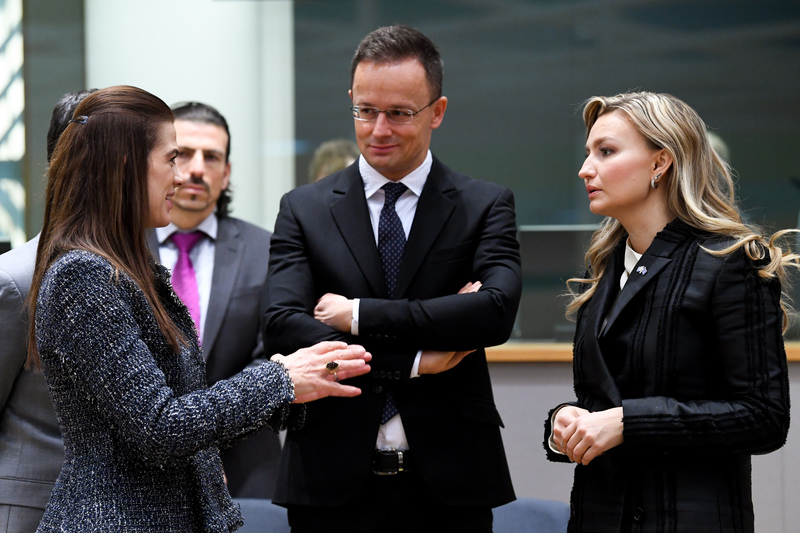
Szijjártó complained that the planned measure would be a rude artificial intervention in the gas market, while the EU has never done so before.
"Moreover, there is no impact assessment, and to enter into such a dangerous, unprecedented operation in such an important, sensitive and vital market as that of natural gas without such an assessment is extremely dangerous," he said.
He added that the price cap would have been a response to the record prices seen in the summer, which have since recovered. The last few months have shown that the situation has stabilised without any market intervention.
The minister also pointed out that the measure could also open the door to serious speculation, because if the level of the price cap is known, any seller will know that the EU is willing to pay that much anyway, so this could even lead to a price increase in a counterproductive way.
More importantly, he stressed, the proposal would seriously jeopardise energy security, as full substitution of Russian gas is physically impossible in the medium term and the price cap would certainly further reduce the amount of gas available.
"The whole proposal is damaging, dangerous, threatens the security of energy supply in Europe, opens the door to speculation and could even lead to price increases," he said.
Szijjártó also said that the proposal contradicts European Council guidelines that the price cap should not affect long-term contracts and that the specific energy situation of member states should be taken into account.
On the former, he underlined that the price cap interferes with the Rotterdam gas exchange pricing, which therefore has an impact on the price formulae of long-term contracts.
At the same time, he welcomed the fact that "two attempts were beaten back", i.e. two provisions were removed from the proposal which had not yet been adopted but circulated by the Council Presidency.
The first was to regulate OTC transactions from the price point of view, which would have reduced member states' freedom and possibilities to purchase gas, since it would not have allowed contracts to be concluded on a bilateral basis without respecting the price cap, he said.
The second and even more important element was that the modification of long-term gas contracts would have been subject to consultation with the European Commission, which, in the words of the minister, would have "totally destroyed the security of Hungarian gas supply".
"I said this at the meeting this morning, that if this had been adopted in that form, everyone in the room would have had to go home today knowing that the security of Hungarian gas supply had been killed," he said.
Source: MTI - Hungarian News Agency
We should be dealing with sensible issues instead of floundering around
Instead of dealing with sensible issues, searching for new sources of energy and developing of infrastructure, the European Union has spent the last few months floundering around the gas price cap, Minister of Foreign Affairs and Trade Péter Szijjártó said in Brussels on Monday.
According to a statement by the Foreign Ministry, the minister said at a press conference following the meeting of EU energy ministers that Hungary does not support the introduction of a price cap on natural gas under any circumstances, as it is a "harmful, dangerous and completely unnecessary" measure.
He said that the community would thereby only react to events that took place in August, further adding that the fact that the continent has been doing fine without a price cap since then only proves its unnecessary nature.
In addition, the introduction of a cap could lead to price increases, both because of a reduction in the quantity available and because it would set the level above the current market price, he warned.
"What does this mean to traders and sellers? It clearly shows that we are willing to pay more for gas than the current market price," he added.
The minister called this unprecedented kind of artificial interference in the functioning of the market dangerous and irresponsible, which should be therefore subject to a very thorough preliminary investigation, to say the least.
Péter Szijjártó said that the solution would be to increase the volume of natural gas, however, that would also require infrastructure development.
"It is useless to build LNG terminals in different parts of Europe until there are no additional pipelines available," he said.
"Instead of dealing with this sensible issue, the last few months have been spent on floundering around the gas price cap," he stressed.
The minister said that a test vote on the EU's Czech presidency's gas cap proposal had been held, with nine member states voting against including Hungary, a result still not enough to make a blocking minority.
"The fact that although there is a legislative majority in favour of the gas price cap, they dare not propose it as a ballot initiative clearly shows that they are trying to build a broad consensus around it so that responsibility can be shared. And when it turns out to have been a completely unnecessary, dangerous, damaging measure for the whole of Europe, then everyone should be held responsible," he said.
"No matter how many rounds of voting there are today, Hungary will vote against. We need to build pipelines, we need to build LNG terminals, we need to find new sources, not to flounder around the gas price cap," he added.
The minister then touched on the issue of oil supply in Central Europe, underlining that the Friendship Pipeline from Russia brings 19 million tonnes of oil a year to Hungary, Slovakia and the Czech Republic.
The only alternative route, the Adriatic pipeline to Croatia, has a capacity of only 12 million tonnes a year, which everyone has been aware of for at least six months, and yet nothing has been done to expand the capacity, he argued.
"This is a huge mistake on the part of the European Union, since this is not a bilateral or trilateral or quadrilateral issue, but a European one," he said.
The Croatian side had made an "unfair" offer to extend Mol's contract, which expires at the end of the year, as it would mean an 80 percent increase in transit fees, which Szijjártó called problematic.
"This is nothing other than an abuse of the war situation, of the monopoly position, and an abuse of the fact that the war could put Hungary, Slovakia and, to some extent, Czechia in a vulnerable position," he said.
In this context, he called on the European Commission to make a proposal so that the prices applied on alternative routes made necessary by the war should not go above European averages.
Asked by journalists about the corruption scandal in the European Parliament and the blocking of the visa waiver process for Qatar, he said that "the pot called the kettle back and there is a lot of chaos and confusion about what to say about it, and they are obviously trying to find someone outside to blame".
"If Qatar were to suspend or slow down its energy cooperation with the European Union, it would be another step towards European energy suicide," he warned.
Source: MTI - Hungarian News Agency
Last Environment Council of 2022
At the Environment Council on 20 December, 2022 in Brussels ministers discussed crucial elements of the nature restoration law. Ministers agreed that biodiversity loss and climate change are strongly interconnected challenges, and the EU has to take urgent and ambitious steps to face them.
The Hungarian delegation was led by Dr Anikó Raisz, State Secretary for Environment. At the meeting the ministers focused on the ambition and targets set in the nature restoration law, on the outcomes of the recent meetings of the decision-making bodies of several multilateral environmental agreements, and they were informed about the major legislative proposals of the European Commission presented in the second half of 2022.
The ministers had a political debate on the nature restoration law which was presented by the European Commission in June, 2022. Ministers agreed that the goal of reversing biodiversity loss requires urgent and ambitious steps, however there were different views on the possible way how to reach this goal. Numerous member states shared the view that the increasing of the funds dedicated for biodiversity is needed for the implementation of the proposal.
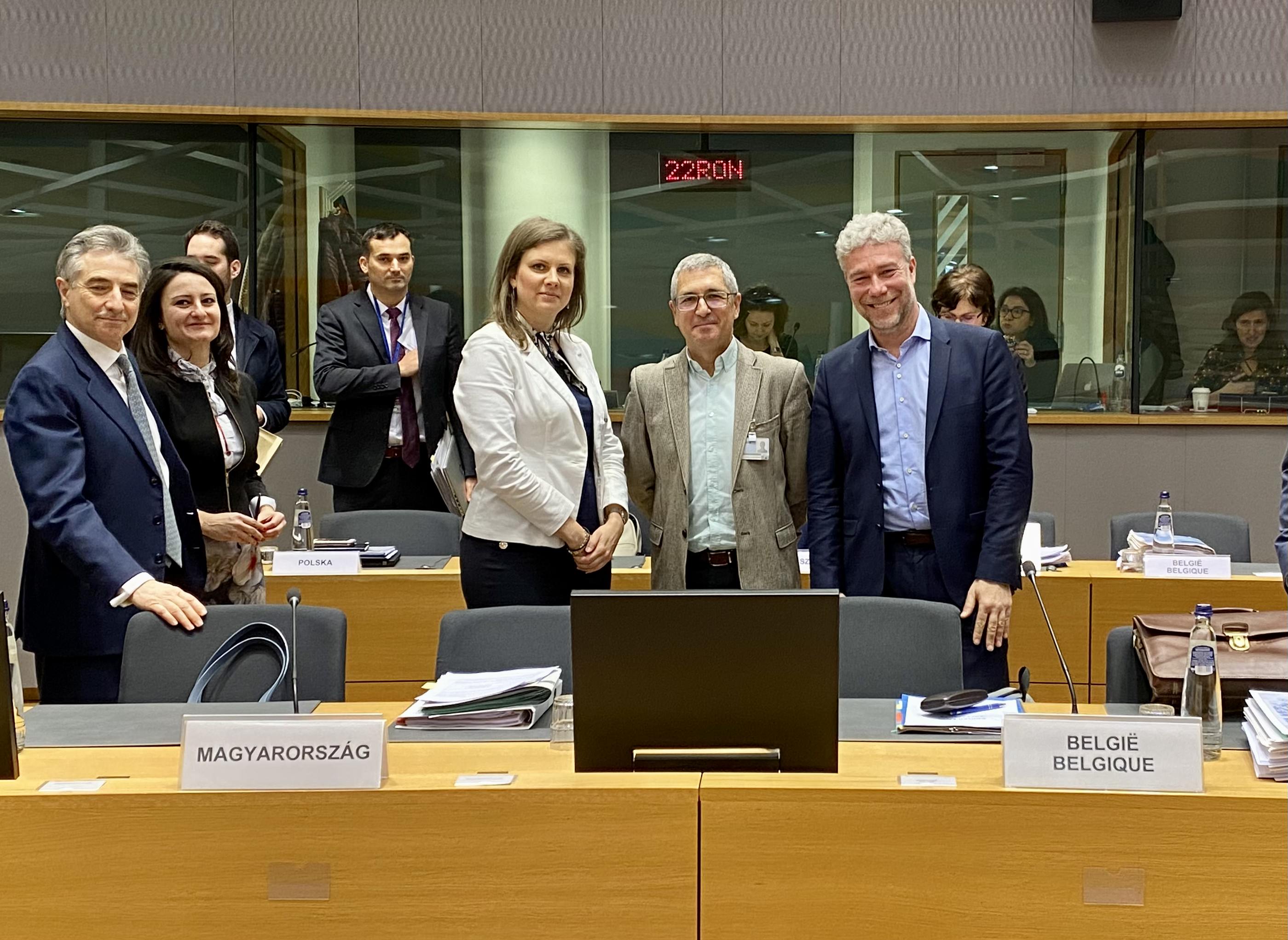
In addition, on the field of nature conservation, ministers were informed on the implementation of the 2030 EU Biodiversity Strategy, on the outcome of the 19th Meeting of the Conference of the Parties (COP 19) to the Convention on International Trade in Endangered Species of Wold Fauna and Flora and the 15th Meeting of the Conference of the Parties of the Convention on Biological Diversity (CBD).
With regards to the recent international conferences on climate policy, the European Commission provided a briefing on the outcome of the 27th Conference of the Parties of the UN Climate Change Conference (UNFCCC COP27) and of the 34th Meeting of the Parties of the Montreal Protocol on Substances that Deplete the Ozone Layer (MOP34).
The Presidency has informed the Ministers on the progress that has been accomplished on the discussion on the Regulation on Fluorinated Greenhouse Gases, the Regulation on Ozone Depleting Substances, the Industrial Emission Directive and the Waste Shipment Regulation.
Commissioner Frans Timmermans presented the elements of the Zero Pollution Package published in October 2022, and the recent legislative proposals in the field of circular economy.
The upcoming Swedish Council Presidency gave a short presentation on their environment work program.
On the margins of the Council meeting, Dr. Anikó Raisz had a trio presidency meeting with Spain and Belgium in order to assess the environmental priorities of the trio. Furthermore, a bilateral discussion was held with the Swedish presidency to get a better insight into the Swedish program and to emphasize the main Hungarian interests on them. The State Secretary also had a bilateral exchange of views with Poland – as the next presidency following Hungary – so that the parties are able to preliminary map the possible environmental links.
